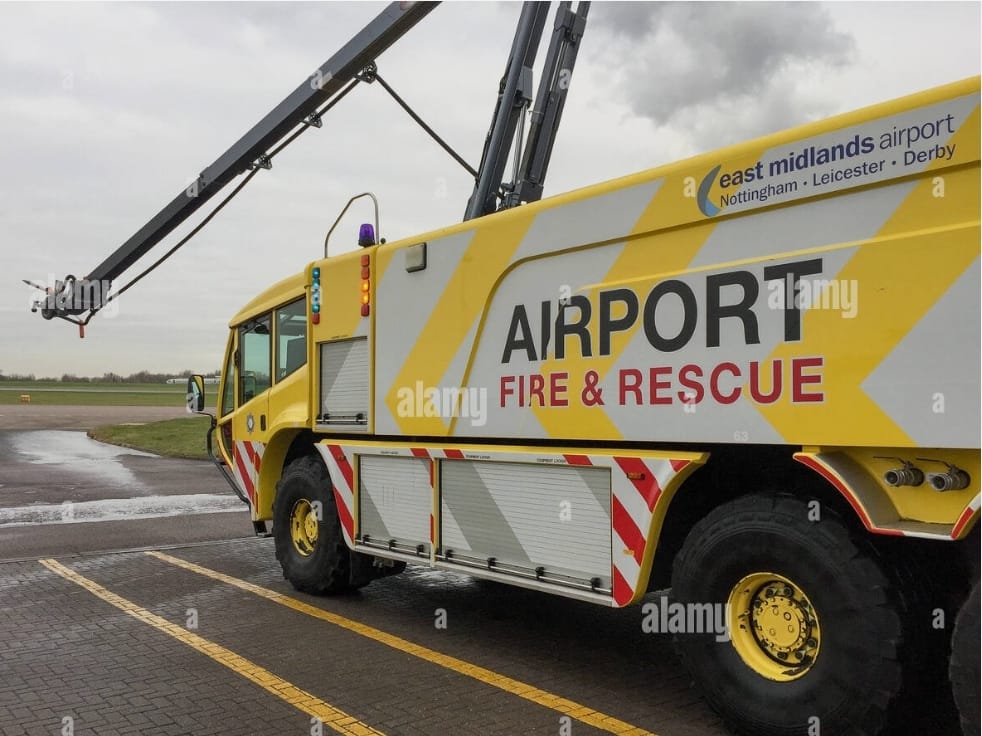
Recently, Air Traffic Services Operations Officer, Eugene Silcott, published an article on social media expressing concerns about vehicle congestion and noise levels at events held at the Sticky Wicket venue, located near the Air Traffic Control (ATC) Tower at V.C. Bird International Airport. While I respect his commitment to airport safety, I believe his public statements were exaggerated, inappropriate for the forum chosen, and potentially damaging to our airport’s reputation.
The Proper Channel for Concerns
The Antigua & Barbuda Airport Authority (ABAA) maintains a structured management system with a CEO, Manager of Operations, and Director of Operations. Weekly meetings are held with ATC members, security, maintenance, and other personnel specifically to discuss problems, concerns, and ideas. These internal meetings and not social media are the appropriate venue for raising operational concerns.
Publishing unvetted safety concerns publicly risks undermining confidence in the ABAA’s ability to manage the airport effectively. Such reports also create unease amongst visitors who may have unfounded concerns landing at the V.C. Bird Int. Airport. Should the International Civil Aviation Organization (ICAO) perceive management deficiencies based on such statements, V.C. Bird International Airport could face a status downgrade with serious consequences for our aviation industry.

Addressing the Specific Claims
Fire Emergency Response
Silcott’s claim: “If a fire were to break out at the main terminal, fire trucks would struggle to reach the airport.”
The reality: This is categorically false. The Airport Fire Station is located on airport property, west of the terminal, directly facing the aircraft ramp area. In any emergency, fire engines can reach the terminal in under two minutes via the ramp. The station maintains ambulances on constant standby, and four frangible gates allow additional emergency vehicles immediate access to any fire or emergency site. Furthermore, multiple safety valves on underground fuel lines prevent fires at refueling ports on the apron.

Traffic Congestion and Emergency Access
Silcott’s claim: Traffic congestion could prevent emergency vehicles from St. John’s from reaching the airport.
The reality: This concern ignores the established behavior of Antiguan motorists. When drivers hear or see emergency vehicles, they consistently clear the way. Daily evidence supports this: during rush hour, police vehicles traveling from Customs to town receive immediate clearance when sirens activate. Years ago, during a political motorcade involving over 1,000 vehicles on Sir George Walter Highway, an ambulance successfully reached its destination as all motorists pulled aside. There has never been an incident where traffic volume prevented an emergency vehicle from reaching its destination in Antigua.
Noise in the Control Tower
Sllcott’s claim: Loud music from events disrupts air traffic control operations.
The reality: I interviewed two former ATC personnel to verify this claim, and both characterized his comments as significantly exaggerated. At 60+ feet elevation, the tower experiences substantially less sound intensity than ground-level patrons. Additionally, loudspeakers are not angled toward the tower. The Canadian-manufactured tower features double-pane glass specifically designed for sound insulation—necessary given that jet engine thrust reversers during landing produce extreme noise levels. According to controllers, event sounds are less distracting than a transistor radio.
Silcott’s suggestion that a non-English speaking pilot might fail to hear ATC instructions, resulting in a collision, is both far-fetched and irresponsible. All pilots operating in this zone must communicate with ATC officers in English—this is mandatory. There is no loud, distracting noise in the tower that would compromise communications. Should ICAO read such unfounded claims, they would be compelled to conduct an investigation based on misinformation.
After mentioning the TCAS anti-collision system which is mandatory on every commercial aircraft, Silcott continued to predict midair collisions due to foreign pilots not understanding instructions from the ATC officers. He knows that the onboard radar, TCAS system, other systems and monitoring and instructions from ATC officers make a midair collision an impossibility.
Air Traffic Controller Access
Silcott’s most problematic claim: Traffic congestion could prevent air traffic controllers from reaching work on time, and “if a controller faces difficulties getting to the control tower, they have every right to return home,” potentially forcing temporary airport closure.
The reality: This statement is reckless and demonstrates either ignorance of established procedures or deliberate exaggeration. Events at Sticky Wicket are advertised well in advance. All airport workers know the alternative routes: Fitches Creek and Shell Beach roads. ATC workers possess Ramp Passes permitting them to drive through the LIAT security gate and along the ramp directly to the airport—I can personally attest to this procedure, having worked at LIAT for 14 years.
Traffic congestion occurs at every major airport I’ve visited in the USA, Canada, and the UK. The suggestion that controllers have “every right to return home” due to traffic is irresponsible, unfounded, and contrary to professional standards. Essential personnel are expected to plan accordingly for known events.
Context and Perspective
The very existence of a cricket grounds guarantees activities involving noise and vehicle traffic. These are known factors. Over the past two decades—since the Stanford 20/20 Cricket era—the ABAA has successfully mitigated such challenges through careful planning and strategic management.
Silcott appears to overlook that he is not the sole expert on aviation matters. Many professionals possess extensive airport experience working within these unique operational environments, subject to standard international laws and regulations. His attempt to circumvent established ABAA management channels is concerning.
This is the second time Sillcott has aired internal matters publicly. Recently, he published an article about a dog on the runway. While acknowledging the incident wasn’t unique to Antigua, he was essentially “airing dirty laundry.” Such matters should be handled internally—allowing ABAA officials to conduct perimeter fence inspections and investigate breaches through proper channels.
Conclusion
Mr. Silcott must utilize the weekly ABAA meetings to voice legitimate concerns rather than disseminating exaggerated claims and unfounded theories on social media. Such public statements risk damaging the reputation, ratings, and operations of V.C. Bird International Airport.
Airport safety is paramount, but it must be addressed through proper channels with accurate information and professional discretion. There is nothing to be gained by being an alarmist.
Frank Southwell
Aviation Professional
Advertise with the mоѕt vіѕіtеd nеwѕ ѕіtе іn Antigua!
We offer fully customizable and flexible digital marketing packages.
Contact us at [email protected]















Cuz people like you Antigua won’t be developed… keep living in the jungle and dance around the fire . incompetent
lol…an aviation professional…me stomach. I remember when the road was being redone this pseudo “aviation professional” said the two way lanes should be heading to the airport and not from the airport in the event someone is late for their flight.
..All is well a good…UNTIL….it’s NOT!!!!
I still maintain that the 2×1 lane system is more dangerous than beneficial. Do not conflate aviation matters with road management.
I am glad you agree with my article
Sorry U guys r speaking of Frankie Southwell that is so popular her in Antigua but this other Frankie Southeell is the new man who was pointed interim CEO of the Airport. This man has lived in Atlanta operates many big airports in the USA. Wright Frankie ppl. Lol!!!
Comments are closed.